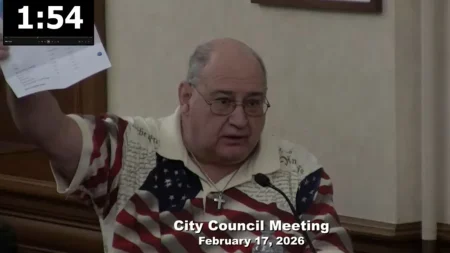Roger Golubski, a former police captain in Kansas City, faced serious allegations of raping and terrorizing Black women during his tenure in law enforcement. His case garnered significant attention, reflecting broader issues of systemic racism and misconduct within police departments. On the eve of his federal trial, charged with civil rights violations and other serious offenses, Golubski was found dead on his back porch. His death raised questions and led to an array of reactions from the community and legal observers alike.
Golubski’s alleged crimes dated back to the 1990s, a time when he was actively patrolling the streets and, he purportedly used his position to prey on vulnerable women. The charges against him included not only sexual assault but also coercion and the intimidation of victims to keep quiet about his actions. Over the years, multiple women came forward with similar accounts of abuse, sparking outrage and calls for accountability. The impact of his actions was profound, affecting many lives and contributing to a larger conversation about police brutality and the need for reform in policing practices.
The timing of Golubski’s death shortly before the trial has created a complex legal scenario, leaving victims and their advocates in a state of frustration and confusion. Many were hopeful that the trial would bring closure and justice for those who had suffered at his hands. The loss of this potential legal recourse has sent ripples through the community and raised further questions about the possibility of accountability for law enforcement officers accused of heinous crimes.
Furthermore, Golubski’s death prompted discussions about the systemic issues within law enforcement that allow such abuses of power to occur. It opened the door for activists and advocates to emphasize the need for fundamental reforms to ensure that police officers are held accountable for their actions. The circumstances surrounding Golubski’s career and the alleged cover-ups highlighted the reluctance of some institutions to confront the darker aspects of their histories, particular when it involves misconduct among their ranks.
Community reactions to Golubski’s death varied, with some expressing relief that he would not be able to manipulate the legal system to his advantage or evade justice any longer. Others, however, felt a deep sense of loss regarding the opportunity for a trial, which would have allowed victims to speak out publicly and potentially recover from their trauma with a measure of justice. There was a palpable sense of anger that once again, the voices of those who suffered might not be heard in a significant way.
As discussions continued posthumously about Golubski’s legacy and the impact of his actions, a growing consensus emerged affirming the need for systemic changes within policing to prevent similar occurrences from happening in the future. Calls for transparency, better training, and accountability measures were echoed throughout the community. In a world where justice often seems out of reach, Golubski’s death served as a painful reminder of the struggles many face when confronting those in power, particularly within law enforcement.











